The Best Snacks to Eat Before and After Your Workout
by Shelby Burns, MS, RDN/LDN

No matter what your preferred sport may be, pre- and post-workout nutrition is extremely important for performing and feeling your best.
When should you eat a pre-workout meal or snack?
You should eat before your workout if:
- You’re hungry,
- It’s been more than 3 or 4 hours since your last meal, or
- Your workout will be longer than 45 minutes and leave you sweating or breathless.
Foods to Avoid
- Spicy foods: These can be incredibly irritating to your digestive system.
- High-fat foods: These foods take longer to digest and are more likely to sit in your stomach and result in a heavy feeling.
- High-fiber foods: Now isn’t the time to load up on veggies. Fiber takes longer to digest and can upset the stomach before your workout.
When choosing a before- or after-workout meal or snack, timing and food choices both matter and can make or break your performance. Will you be training in twenty minutes, an hour, or three hours? Read on for optimal food ideas based on the timing of your training or practice.
3+ Hours before Workout
Whether you’re chasing a new PR, training to win a match, or just getting in your daily workout, it’s important to have energy. Sufficient glycogen (aka carb) stores help to provide this energy. Having sufficient glycogen stores allows you to perform at a higher intensity for longer without feeling fatigued. That’s why it’s important to regularly eat enough high-quality complex carbs. If you have more than three hours before your workout, this is a great time to eat a balanced meal that is rich in protein, healthy fats, and complex fibrous carbohydrates. The protein will help to rebuild and maintain muscles, the fat will help keep you full, and the fiber and carbs support gut health and replenish glycogen stores! Here are some meal ideas to get you started:
- 2 eggs with avocado slices on multigrain toast, 1 handful of berries
- 1 turkey sandwich or BLT with salsa, 1 handful of carrots
- 1 chicken breast with 1 sweet potato and 1 handful of broccoli
- 1 individual yogurt cup, 1 apple, and 2 tablespoons of peanut butter
- 4–5 dates or 1 banana with 2 tablespoons almond butter and chocolate chips
- 1 cup cottage cheese with 1 cup berries or orange slices
- 1 single-serving packet of tuna, 7–10 crackers, and cucumber slices
The focus here should be moderate- to high-carbs with protein and fiber. Because protein and fat take longer to digest, you’ll want to avoid or minimize these foods as you get closer to your workout.
1–2 Hours before Workout
For workouts that are greater than 60 minutes but less than 3 hours out, you’re in a bit of a gray area. This is where that “one size fits all” mentality really doesn’t apply. Some athletes may prefer to go into a workout on an empty stomach. Others prefer to have a snack, because they know that otherwise they will get hungry during their workout (or be ravenous afterward). The best approach is the one that works best for you and allows you to perform at the level you desire!
Less than 1 Hour before Workout
A pre-workout snack is meant to give you a burst of energy that will get you through your workout. The focus here should be high-carb foods with little fiber, protein, and fat. However, keep food intake minimal or skip it entirely this close to short (less than 45 minutes), intense events or workouts because the body will typically have all the energy it needs to put in the work. Therefore, pre-workout fuel is not required.
- Mixed berry smoothie with frozen banana and orange juice
- Rice cake or English muffin with jelly
- Fruit popsicle
- Fig bar
- Graham crackers
- Applesauce
- Bagel
- Pretzels
- Cheerios
- Piece of fruit
These quick-digesting carb sources won’t bog down your stomach while you are working out. They will also help to minimize the likelihood of GI distress.
Post-workout Snacks
In order to gain lean muscle, you need to replenish what was lost. Filling your body with healthy post-workout fuel is critical for replenishing glycogen stores and facilitating muscle repair. Aim to fuel with a combination of carbohydrates and protein within 60–180 minutes of finishing your workout. Keep in mind: The amount of refueling needed is dependent on the time and intensity spent exercising. For a slow, low-intensity workout (e.g., walking for 30–45 min), refueling may not be required. For bodybuilders, highly active athletes, and endurance athletes, we recommend refueling with some proper nutrition. Some good options are:
- Post-workout recovery smoothie made with Greek yogurt, milk of choice, and protein powder
- Low-fat chocolate milk
- Turkey with hummus on a whole grain wrap, veggies
- Yogurt with fruit
- Sweet potato and eggs
- Chicken, brown rice, and veggie of choice
- 1 or 2 protein waffles with banana slices and 1 tablespoon of peanut butter
- Oatmeal and berries
- Whole grain crackers with cottage cheese
Now that you have a better understanding of what to eat before and after your workout, give some of the above foods a try. Start with small amounts to see how your body responds to and tolerates different foods before and after your workouts. The important thing is to experiment and find what works best for YOU!
About the Author

|
Registered Dietitian Nutritionist Shelby Burns has been in the fitness and nutrition industries for more than ten years. Shelby, who has personally struggled with gut issues, believes that exceptional wellness starts from within. Her passion for helping people prioritize their health shines through as she assists Ixcela clients in making diet and lifestyle shifts that result in renewed energy, better sleep, and improved digestion. |
|
. . . . . . . . . . . . . . . . . . . . . . . . . . . . . . . . . . . . . . . . . . . . . . . . . . . . . . . . . . . . . . . . . . . . . . . . . . . . . . . . . Interested in learning more about Ixcela? Check out Ixcela’s test, to receive personalized nutrition, supplement, mindfulness, and fitness fitness recommendations based on the metabolites we test to improve energy, GI health, mood, and overall wellbeing.
|

